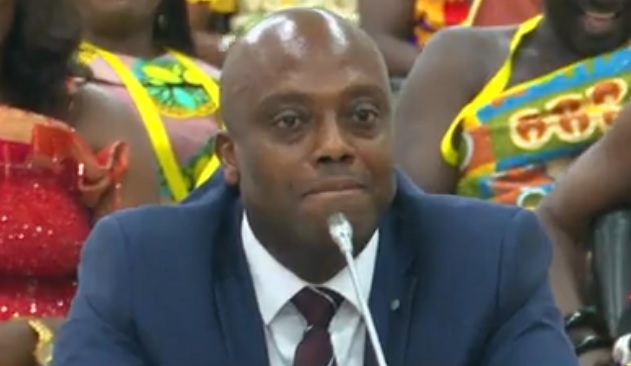ARTICLE AD
The Assistant National PRO of the Ghana Registered Nurses and Midwives Association (GRNMA) has clarified their call to exclude newly recruited nurses from government’s recent suspension of public service appointments.
Philemon Gyapong said it was a piece of advice, not a threat.
His comments follow growing public debate after the Association urged government to reconsider the directive affecting appointments made after December 7, 2024.
Speaking on Joy News’ PM Express on Monday, February 24, Mr Gyapong stressed the Association’s intention to advocate for fairness.
“I think we cautioned the government on its directive—we were giving them advice, let me put it that way,” he said.
He stressed that the GRNMA’s intervention aimed to protect the livelihoods of thousands of newly recruited nurses and midwives who, despite completing due processes, faced uncertainty.
Mr Gyapong underscored the plight of these health workers, highlighting the years of waiting many have endured post-training.
“If nurses and midwives, who are also the youth of this country, who have stayed on for four to five years post-training, are laid off based on the fact that maybe their financial clearance process didn’t complete before a certain period, it will be very unfair to do that,” he noted.
Addressing misconceptions about the association’s stance, he reaffirmed that the GRNMA’s engagement with the government was constructive.
“We are not here to threaten. Our goal is to advise and ensure that nurses, who are critical to the health system, are not unfairly affected by administrative delays,” he explained.
Mr Gyapong revealed that the Ministry of Health had assured the association of its commitment to safeguarding those who followed the approved recruitment process.
“The ministry has made us aware that they are going to stick to the directives based on the emphasis they laid—those who went through due process and were given financial clearance are not supposed to go home,” he stated.
Providing further clarity on recruitment procedures, Mr Gyapong explained the importance of financial clearance in the current system.
“If you don’t have financial clearance, it means you have not been budgeted for, and the government doesn’t have a provision for your salary. That is what has changed from the previous recruitment process,” he said.
Unlike in the past—when new hires could wait up to a year to be added to the payroll—financial clearance now ensures immediate budget allocation.
“The 15,200 which we are aware of have financial clearance. I don’t know of any outside recruitment—there is no recruitment outside of that that we are aware of,” he stressed.
Mr Gyapong’s remarks come as government navigates economic constraints and employment challenges in the public sector.
His appeal underscores the broader issue of youth unemployment and the crucial role of health professionals in sustaining the country’s healthcare system.
“We must not forget that these nurses are part of the youth we are all working to empower. Sending them home after years of waiting and following the right processes would be a grave injustice,” he concluded.

DISCLAIMER: The Views, Comments, Opinions, Contributions and Statements made by Readers and Contributors on this platform do not necessarily represent the views or policy of Multimedia Group Limited.

 
 
 
 
 
 
 
 
 

 3 hours ago
3
3 hours ago
3 

